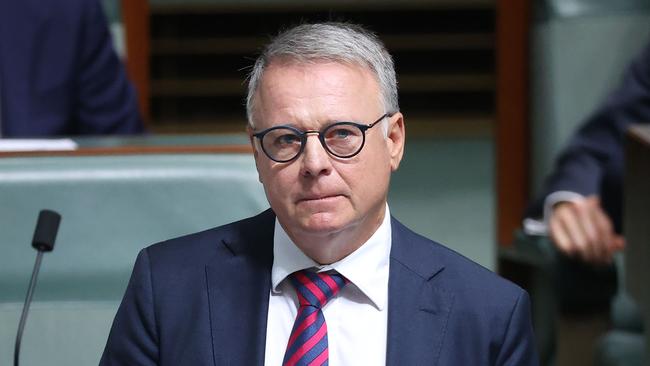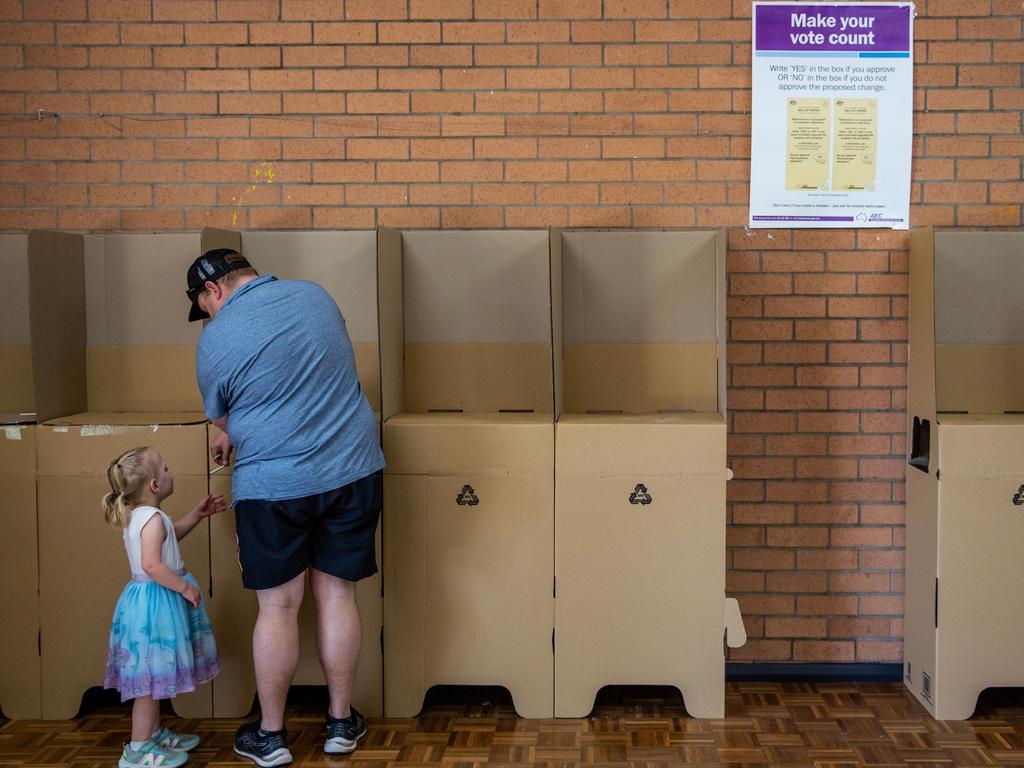Progressive advice to government going too far, says Joel Fitzgibbon
Canberra’s progressive population risks warping government decisions, a former Labor frontbencher says.

Former Labor frontbencher Joel Fitzgibbon says the federal public service is becoming increasingly progressive and that it risks skewing the decisions of government ministers.
The former defence and agriculture minister said the results of the voice to parliament referendum, in which the ACT was the only jurisdiction with a majority Yes vote, showed the views held within the electorate dominated by the public service were not aligned to most of the country.
Speaking at the Australian Meat Industry Council conference, Mr Fitzgibbon, who retired before the last election, said increased reliance from ministers on advice from bureaucrats meant it could lead to poor outcomes. “Our public service in Canberra is being increasingly, not infiltrated, but joined by increasingly progressive people from the ACT,” he said. “I see on a daily basis what impact that’s having.
“For some people that’s a wonderful thing, we’re a more progressive society and more conscious about the natural environment, climate change and all those things.
“But there is a risk, given how dependent our ministers will become on their advice and guidance, that that pendulum could swing too far and, in fact, I do see signs that that’s happening.”
A self-professed defender of traditional industries such as mining and forestry, Mr Fitzgibbon also criticised “extreme environmental activists” who misrepresented facts and were “driven more by ideology than by outcomes”.
“In recent years, their activities have been growing largely because they are bankrolled by high-wealth individuals in search of something money can’t buy: that is relevance,” he said.
“They’re funding social media and advertising campaigns, financing job-destroying legal challenges, and of course wheeling Trojan horses into our corporate boardrooms.
“Sadly, they’re now sending people to parliament, which makes the challenges of our traditional industries greater than they ever were before and, on that basis, political advocacy and industry advocacy has never been so important.”
Mr Fitzgibbon said it was incumbent on the agriculture industry to call out falsehoods and combat activist misinformation.
“Not so long ago food producers were universally loved by the Australian community,” he said.
“But an increasingly progressive electorate has started a conversation about the merits of your very existence, and they are growing in number.
“If the agriculture sector wants to stem the tide of this rising progressivism and this is growing animal activism and climate change campaigns which can adversely impact on your sector, you’re going to have to work harder to educate the electorate.”
He said the National Farmers Federation would not win the war it had declared on the Albanese government, particularly in its opposition to ending the live sheep export trade.
“(Former agriculture minister David) Littleproud, to his credit, tidied it (the live sheep export trade) up, but the government has stuck to its promise they took to the 2019 election,” he said.
“They’re not going to backflip on that.”






